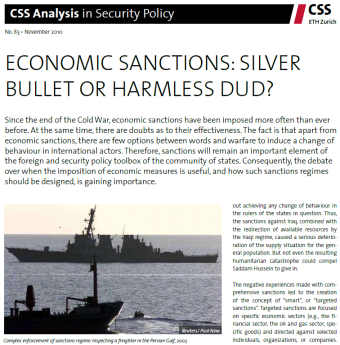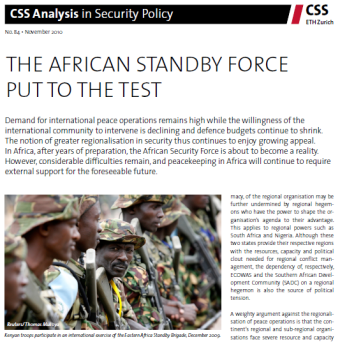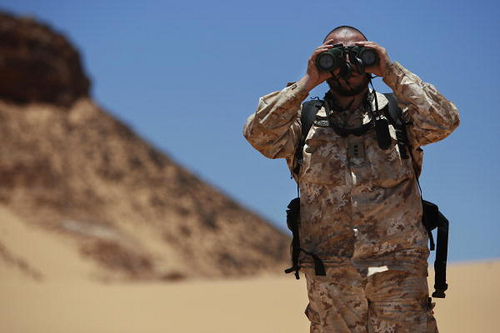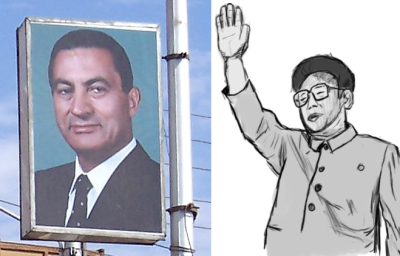The Centre for Security Studies (CSS) has recently published two new policy briefs.

CSS researcher Daniel Trachsler looks at the effectiveness of economic sanctions.
He argues that, apart from economic sanctions, there are few options between words and warfare to induce a change of behavior in international actors. Therefore, sanctions will remain an important policy instrument and debating their usefulness as well as their design is important.
Download the full analysis here.
For more information, see our collection of resources on economic sanctions.

Meanwhile, colleague Aleksandra Dier examines the emerging African Standby Force.
According to her, demand for international peace operations remains high while the willingness of the international community to intervene is declining and defence budgets continue to shrink. This is why the notion of greater regionalisation in security continues to enjoy growing appeal.
Download the full analysis here.
For more information, see our collection of resources on peacekeeping operations in Africa.




